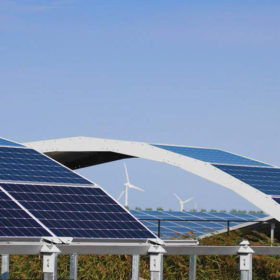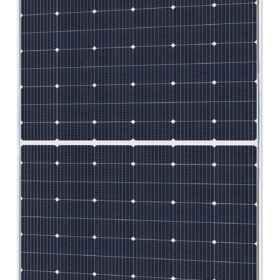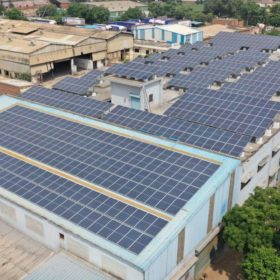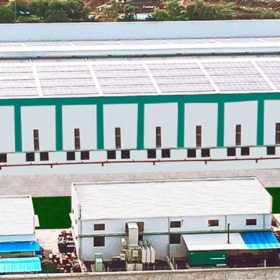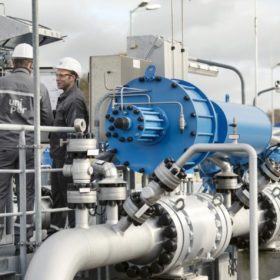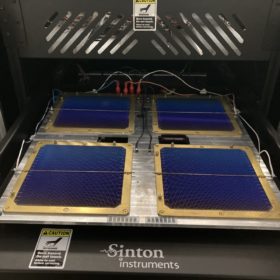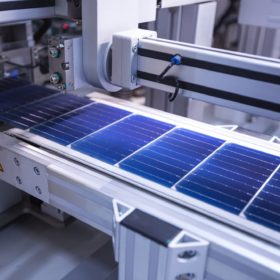Arc-shaped PV system for agrivoltaics from Germany
The PV mounting system was developed by Germany-based Goldbeck and will initially be available in the Netherlands from 2022. The company will test the new technology in a 45 MW PV project.
Jakson unveils 21% efficient mono PERC solar modules
The Indian solar manufacturer has released the Helia series of high-efficiency mono PERC PV panels. Ranging from 450W to 600W outputs, the multi-busbar modules are designed for use in residential, commercial and utility-scale installations.
Commercial and industrial rooftops in India could deploy 1,875 MW of solar in 2021
According to a new report, India’s commercial and industrial sector will increase its rooftop solar deployments by 47% year-on-year, with bifacials and large-size high-wattage modules offering cost-effective support for reducing electricity costs.
Waaree completes supply of 300+ MW solar modules for American project
The Indian solar manufacturer supplied its 385Wp and 390Wp mono PERC solar PV modules for US-headquartered CIM Group’s 250 MW solar photovoltaic project.
IndianOil to build India’s first green hydrogen plant
The state-run oil and gas major will set up a green hydrogen plant at its Mathura refinery in the Indian State of Uttar Pradesh. The green hydrogen will replace carbon-emitting fuels used in the refinery to process crude oil into value-added products such as petrol and diesel.
Hitachi ABB Power Grids commissions ultra-high-voltage DC link connecting Indian states
The 1,800-kilometer link connecting Raigarh in Chhattisgarh to Pugalur in Tamil Nadu can deliver 6 GW. Power can be transmitted in either direction, depending on demand.
New tech may bring heterojunction solar cells based on p-type wafers closer to mass production
An Australian-Russian research group has developed a silicon heterojunction solar cell based on p-type gallium-doped wafers with an efficiency of 22.6% and an improved stability. The scientists are convinced that these wafers may become a mainstream solution for the SHJ segment within the next decade.
ReNew Power to use Dassault Systèmes’ 3D virtual platform for RE project management
The Indian developer will use the 3DExperience virtual platform to manage its utility-scale solar, wind, and hybrid energy projects more efficiently. The platform enables users to track the progress of multiple complex projects, quickly act on insights and ensure best-in-class delivery.
German start-up offers 5.2 kWh AC battery that works without inverter
Sax Power has developed a new residential battery which it describes as a game-changer in the battery technology.
Longi claims 25.19% efficiency for p-type TOPCon solar cell
Longi’s 25.19% efficiency rating for its new p-type TOPCon solar cells, confirmed by the Institute for Solar Energy Research in Hamelin, is reportedly a world record.
